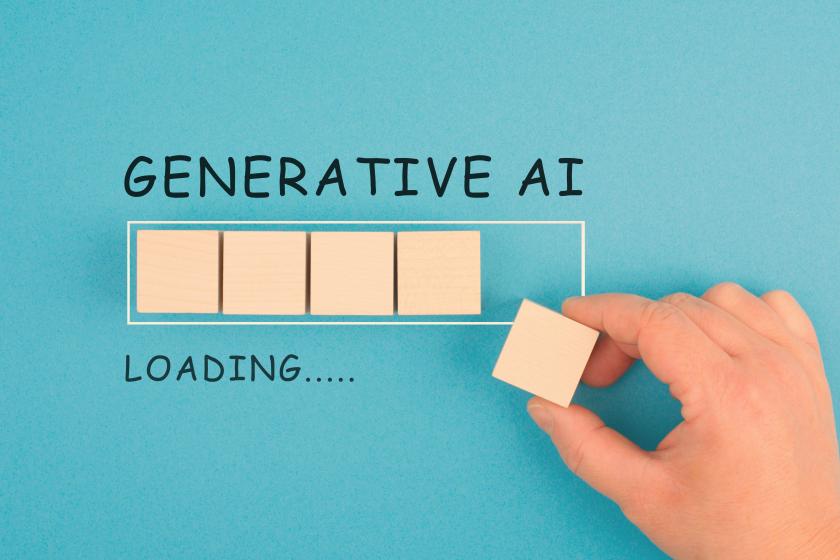Artificial intelligence (AI)-powered large language models (LLMs) like ChatGPT are more than just a trend; they have become a significant part of real-world applications. AI is transforming what’s possible, turning tasks that would take years to complete into ones that can be done in minutes. AI is also changing user behavior, with many people relying on these tools and unwilling to return to older methods.
Since launching its first AI products in 2018, cloud contact center provider Talkdesk has evolved its portfolio to include generative AI (gen AI), a subset of AI that creates original content—text, imagery, and audio—based on training data. I recently chatted with Charanya "CK" Kannan, chief product and engineering officer/head of AI at Talkdesk, about how gen AI transforms contact centers. Highlights of the ZKast interview are below.
In the past, AI in contact centers was limited to finding knowledge base articles for customer queries. For example, AI would source articles on shoe returns if a customer inquired about returning shoes. This was a simple intent-matching process. Gen AI represents a major leap forward by generating complete responses and creating more dynamic, intelligent interactions that engage in active problem-solving.
Talkdesk has integrated generative AI into its customer service solutions, starting with agent summarization. This feature, essential in contact centers, has dramatically reduced the time it takes to summarize conversations from minutes to seconds. Several other use cases illustrate why gen AI has become popular among agents, including:
- Workflow Simplification: Gen AI simplifies workflow creation in contact centers by allowing users to describe the desired process in natural language, significantly reducing the complexity and effort involved in creating and modifying workflows.
- Automated Virtual Agent Creation: Talkdesk is developing a gen AI feature that analyzes contact center interactions, identifies inefficiencies, suggests automation for frequent tasks, predicts the time and cost savings of those automations, and generates the automation with the click of a button.
Recognizing challenges like potential inaccuracies or “hallucinations” in gen AI, Talkdesk employs tools for monitoring and fine-tuning AI responses. This includes an AI trainer that allows companies to observe and simulate AI interactions to continuously improve AI models, thereby ensuring they provide accurate and reliable information. Additionally, the focus on LLMs is expanding to include multi-modal models that integrate images, voice, and other forms of media, indicating significant advancements in AI applications.
Furthermore, Talkdesk places high importance on data security since it has a large enterprise customer base in the healthcare, financial services, and public sectors. The vendor recently has achieved Federal Risk and Authorization Management Program (FedRAMP) In Process designation and is listed in the FedRAMP marketplace, further showing its commitment to data security standards. Talkdesk doesn’t use customer data to train AI models across multiple customers, prioritizing privacy and security over efficiency.
To implement gen AI, Talkdesk partnered with Microsoft Azure to leverage its LLM capabilities. However, Talkdesk also offers customers the flexibility to use their own LLMs. By providing the option for both the Azure LLM and custom LLMs, Talkdesk is addressing the diverse needs of its enterprise customers.
Despite its potential, AI is unlikely to replace contact center agents completely. The complexity of contact center roles is undeniable. While AI can automate simple queries, more intricate problem-solving and managing multiple systems may not be fully replicable by AI. However, the role of contact center agents is evolving. Rather than being replaced, agents are expected to oversee and enhance the performance of AI systems, akin to a managerial role.
When evaluating the effectiveness of a contact center, managers and IT leaders should balance excellent customer experience (CX) and efficiency. Many use the traditional metric of average handle time (AHT), but it’s not always the best efficiency indicator. Key metrics for great CX include standard measures like customer satisfaction (CSAT) and net promoter score (NPS). This will give companies a broader understanding of efficiency beyond how quickly calls or inquiries are handled.
In summary, adopting gen AI is essential for companies to keep up with market changes. Companies that fail to do so might struggle to stay relevant. This technological shift will lead to the creation of new executive positions like chief AI officer, which means AI will be integrated into business operations going forward.
See the full interview here:
Zeus Kerravala is the founder and principal analyst with ZK Research.
Read his other Network Computing articles here.
Related articles:









